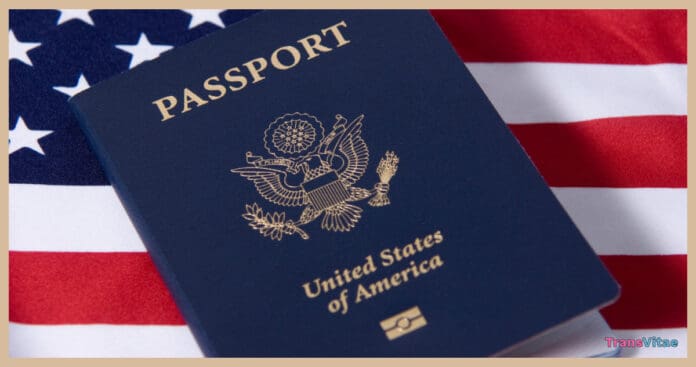A federal judge has halted the Trump administration’s attempt to ban the use of the “X” gender marker on U.S. passports and restrict transgender and nonbinary individuals from updating the gender listed on their travel documents. The decision offers a significant early victory for civil rights advocates as the legal battle over gender recognition moves forward.
U.S. District Judge Julia Kobick issued a preliminary injunction on Friday, siding with a lawsuit filed by the American Civil Liberties Union (ACLU) on behalf of seven plaintiffs, including five transgender and two nonbinary Americans. Kobick’s ruling blocks the enforcement of the January executive order that aimed to redefine gender strictly in biological terms and roll back the inclusive passport policies enacted under the Biden administration.
RELATED: Passport Lawsuit: Seven Trans Americans Challenge Trump Order
“The Executive Order and the Passport Policy on their face classify passport applicants on the basis of sex and thus must be reviewed under intermediate judicial scrutiny,” wrote Judge Kobick, who was appointed by President Biden. “That standard requires the government to demonstrate that its actions are substantially related to an important governmental interest. The government has failed to meet this standard.”
The Trump administration’s January order asserted that individuals are strictly male or female based on biological sex assigned at birth. It rejected the validity of gender transitions and eliminated the nonbinary “X” option on passports, sparking immediate backlash from LGBTQ+ organizations and medical experts alike.
Under the previous policy, U.S. passport applicants were permitted to select “M,” “F,” or “X” on their documents without needing medical certification, a recognition of the lived realities of many transgender, nonbinary, and intersex Americans. The new rule would have effectively blocked these communities from acquiring accurate identification, complicating international travel, exposing individuals to harassment, and denying basic recognition of gender identity.
“We all have a right to accurate identity documents,” said Sruti Swaminathan, an attorney with the ACLU’s LGBTQ & HIV Project. “This policy invites harassment, discrimination, and violence against transgender Americans who can no longer obtain or renew a passport that matches who they are.”
The Trump administration defended the passport restrictions by arguing that the president has broad authority over foreign travel documents and claimed that plaintiffs “would not be harmed” by the policy change, noting that they would still be allowed to travel abroad.
But for many in the transgender and nonbinary communities, the stakes are deeply personal. Being forced to carry identification that misgenders them can lead to invasive questions, emotional distress, and, in some cases, dangerous encounters, particularly in countries with hostile attitudes toward LGBTQ+ individuals.
Friday’s injunction does not end the case but temporarily restores the previous passport policies while the broader legal challenge proceeds. It also signals that courts may continue to push back against the administration’s attempts to codify rigid definitions of sex and gender.
For now, transgender, nonbinary, and intersex Americans can continue to apply for passports with accurate gender markers, a necessary lifeline in a time of heightened political attacks on LGBTQ+ rights.
This ruling is a reminder that legal recognition of identity is not a privilege; it’s a right. This ruling has reaffirmed that right for many.


